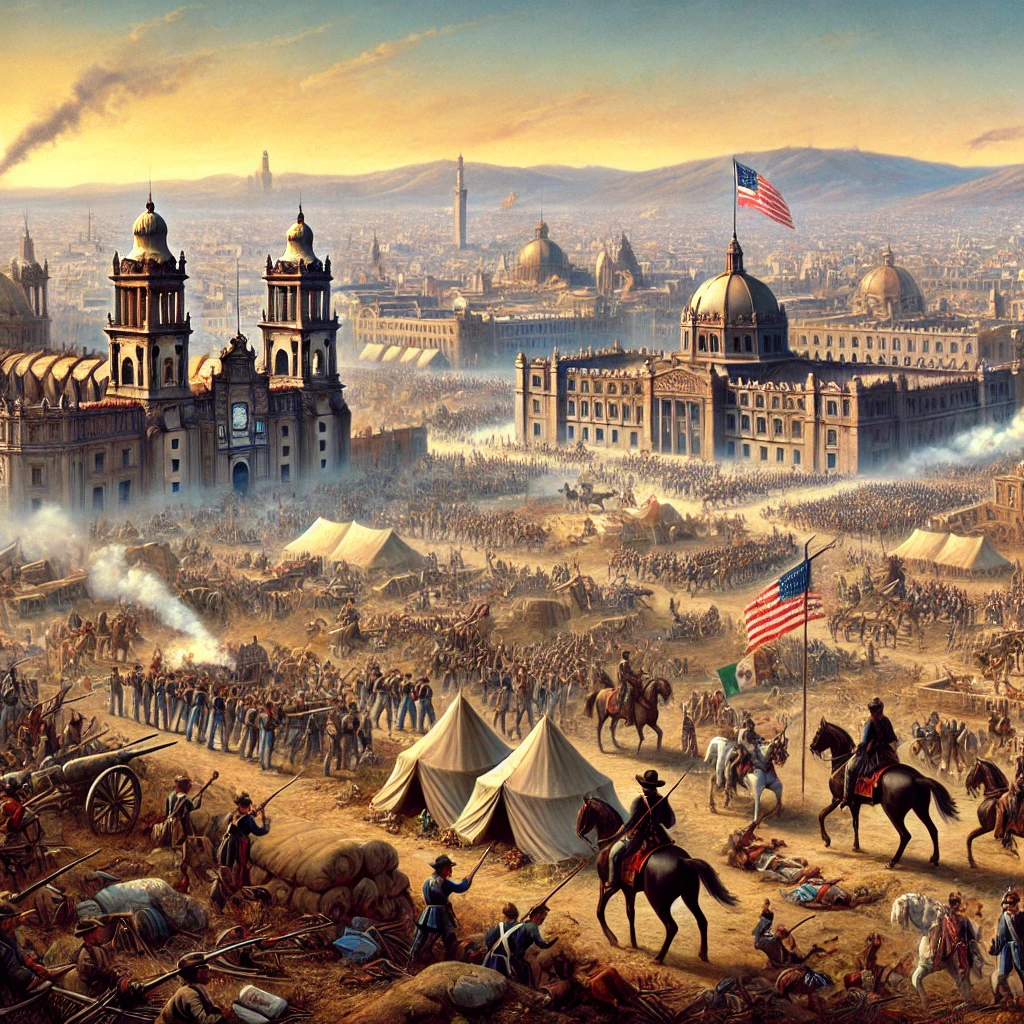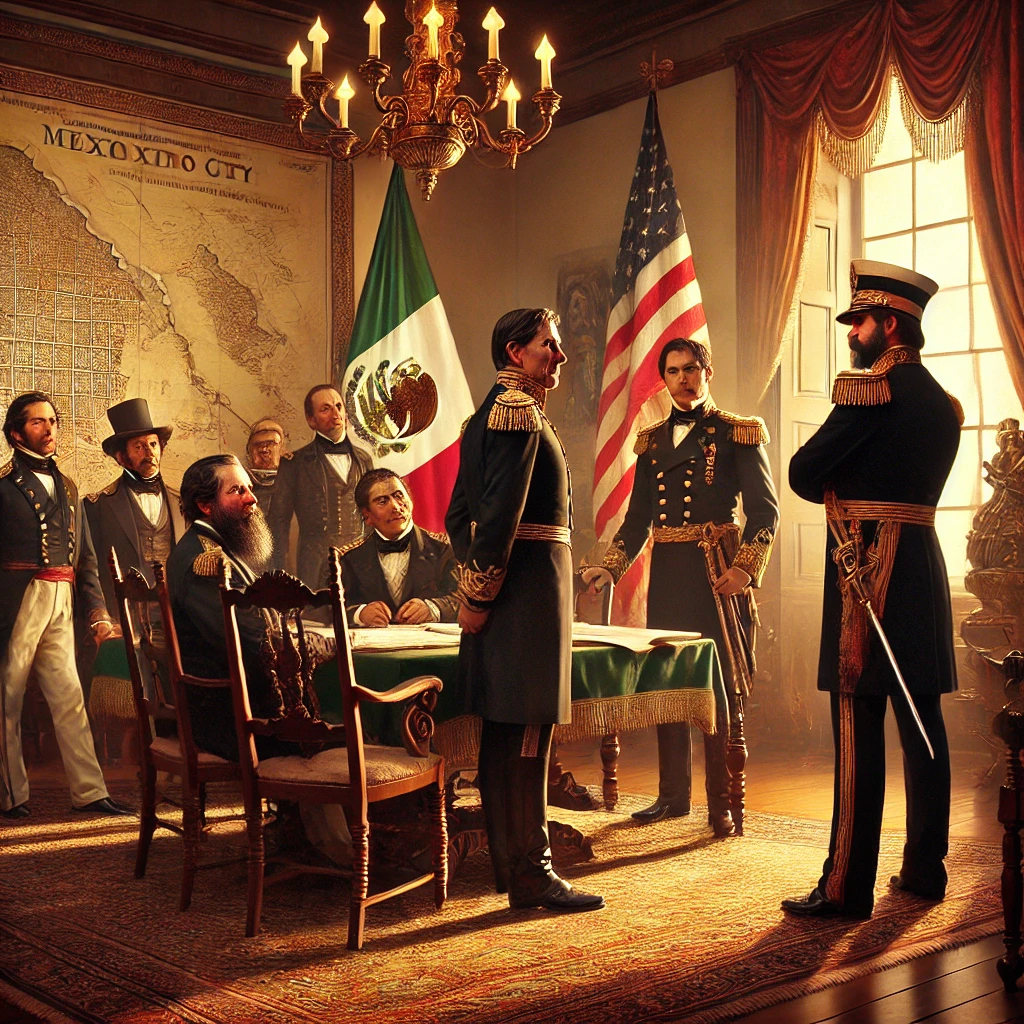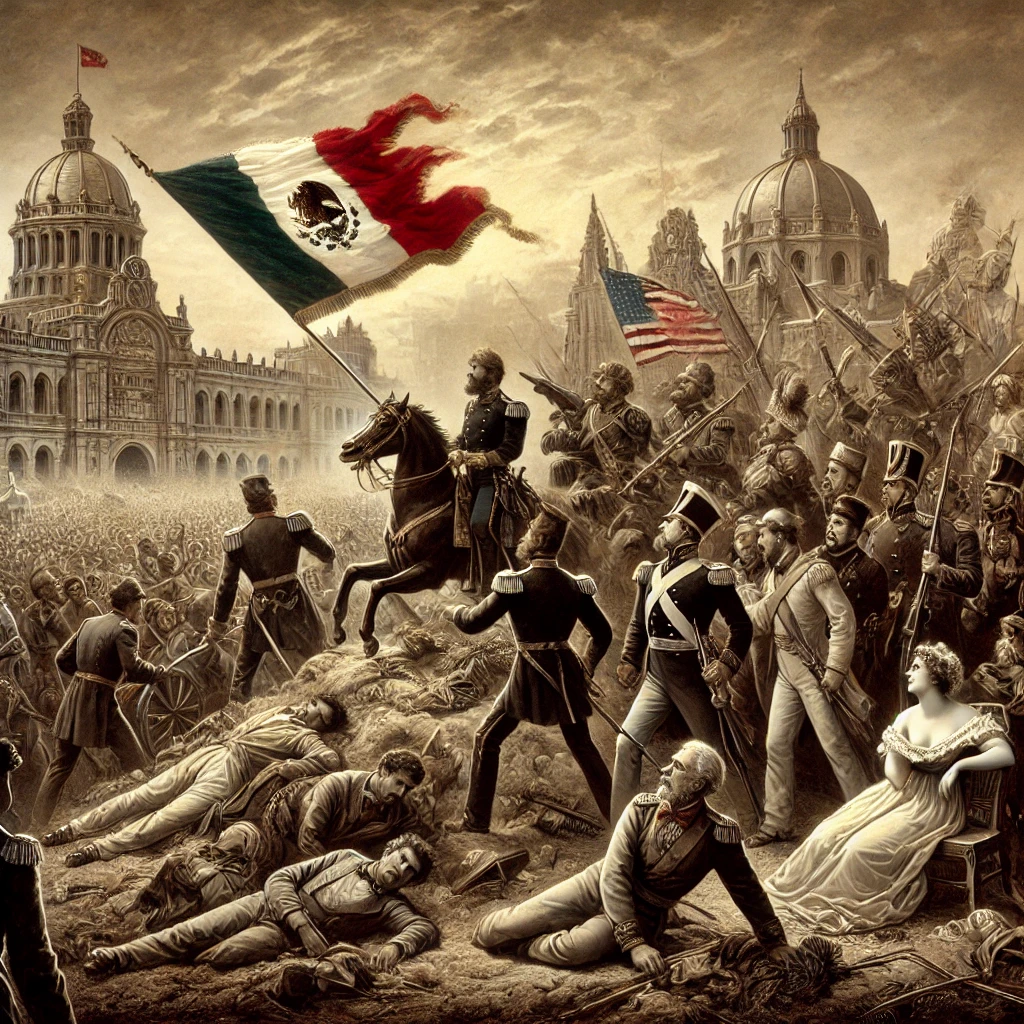On September 14, 1847, U.S. forces, under the command of General Winfield Scott, captured Mexico City, bringing an end to the military phase of the Mexican-American War. This pivotal event marked the culmination of a series of successful American military campaigns and significantly impacted the course of both Mexican and American history. The capture of the Mexican capital was a decisive moment in a conflict that had profound implications for both nations involved.
The Road to Mexico City
The path to the capture of Mexico City was marked by a series of critical battles and strategic maneuvers. Following the declaration of war in 1846, the United States embarked on a military campaign aimed at expanding its territory and asserting its dominance in North America. General Scott, a seasoned military leader, led a well-coordinated effort to advance towards the Mexican capital. His campaign was characterized by a series of victories, including the battles of Veracruz and Cerro Gordo, which paved the way for the final assault on Mexico City.

The successful military strategy employed by Scott involved not only direct confrontations with Mexican forces but also the careful planning of supply lines and logistical support. The American forces faced determined resistance from Mexican troops and experienced significant challenges during the campaign. Despite these obstacles, the steady advance of the U.S. forces demonstrated their military superiority and effectively isolated Mexico City from potential reinforcements.
The Battle for the Capital
The final assault on Mexico City began in early September 1847 and was characterized by intense fighting and strategic maneuvering. The American forces encountered formidable defenses as they approached the city, including fortified positions and entrenched Mexican troops. Despite the challenges, the U.S. military’s superior firepower and tactical prowess allowed them to overcome these defenses and make significant progress towards the heart of the city.
On September 14, 1847, the American forces, after a series of fierce engagements, entered Mexico City. The capture of the capital was a significant achievement that marked the end of the military phase of the war. The American victory in Mexico City effectively forced the Mexican government to seek peace and negotiate terms of surrender, leading to the eventual end of the conflict.

Aftermath and Impact
The capture of Mexico City had far-reaching consequences for both Mexico and the United States. For Mexico, the loss of its capital city represented a profound humiliation and a significant blow to national pride. The defeat forced Mexico to negotiate terms that would have lasting implications for its territory and sovereignty. The Treaty of Guadalupe Hidalgo, signed in February 1848, formally ended the war and ceded a significant portion of Mexican territory to the United States, including present-day California, Arizona, New Mexico, and parts of other states.
For the United States, the victory in Mexico City marked the successful culmination of its expansionist goals. The acquisition of new territories significantly altered the nation’s geographical and political landscape, fueling further debates over the extension of slavery and the balance of power between free and slave states. The Mexican-American War also had implications for U.S. foreign policy, shaping its approach to future conflicts and territorial expansion.

Lasting Impact
The capture of Mexico City and the end of the Mexican-American War had enduring effects on both nations. For Mexico, the war and its aftermath contributed to a period of political instability and economic hardship. The loss of territory and the impact of the war on Mexican society had long-lasting implications for the country’s development and its relationship with its northern neighbor.
In the United States, the acquisition of new territories set the stage for the nation’s westward expansion and contributed to the growth of its economic and political influence. The Mexican-American War and its consequences played a crucial role in shaping American identity and its role on the global stage. The war’s legacy continues to influence U.S.-Mexican relations and the historical narrative of both nations.
The capture of Mexico City on September 14, 1847, remains a significant historical event, reflecting the complexities of 19th-century geopolitics and the impact of military conflict on national development. The outcomes of the Mexican-American War have left a lasting imprint on the history of both Mexico and the United States, highlighting the ways in which military engagements can reshape nations and influence their future trajectories.
